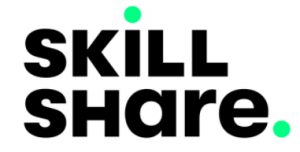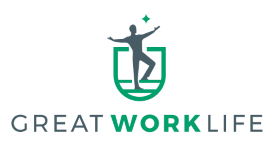I contacted scholars, business leaders, entrepreneurs, and hiring managers to find out their favorite and most interesting questions they like to ask interviewees. Not only that, but they also provided the reasoning behind the questions.
Situational, behavioral, and even disruptive questioning are all included. This article contains a great depth of knowledge, so please use the table of contents (top right) to jump to a question that interests you. The downloadable PDF is here.

1. When is it okay to bend the rules?
For example, when I ask, “When is it okay to bend the rules?” The answer should be “never.” If someone says they would make an exception for a reason, I would go ahead and say to myself; this is probably not someone I should hire. If they say, “Only if the leader allows this,” that would be the only reason I would consider that applicant. I like to ask situational questions about a person’s character because I don’t want people coming into the job thinking it is acceptable to bend the rules or be unethical. I want someone loyal and trustworthy to my company. This answer is very important because it can directly reveal if they will be honest.
2. What would you do in a difficult work situation?
For my second question, “What would you do in a difficult work situation?” From the answer, I would expect to learn whether or not they will have patience, wisdom, and leadership skills in handling difficult questions. Some people answer nervously on the spot or might not be able to think of an answer, in which case, I can ask them to give me an example of where this might have happened so they can answer more easily. I can then use that example to make my final decision. Character is so important.
Many people can be trained in certain positions at your workplace, so if their degree doesn’t necessarily match what you’re hiring for, that shouldn’t be as big of a deal, depending on how intricate the job is. When hiring, finding someone with good character is like finding gold. Of course, you want to factor in intelligence, as well. However, everything else regarding job training usually falls into place with someone with good character and moral standards.
3. How do you respond if you’re behind schedule, a client or employee needs your help?
Lastly, for my third question, “If you’re falling behind and a client or employee needs you to help them with something, how would you respond?”; I would expect to learn how the potential new hire will handle working under pressure, but most importantly, their willingness to put others before themselves. I would hope for them to say they will help someone out no matter what kind of pressure they are under.
I would have to say that these are my three favorite questions to ask. Finding out certain characteristics of the potential new hire beforehand is not always something that is done. However, it’s probably one of the most determining factors for me because it gives me some foresight on what kind of worker they will be.
Aside from being the founder of the calendar productivity tool Calendar, John Rampton is an entrepreneur, investor, and startup enthusiast.

"When You Stop Learning, You Stop Living" SkillShare Makes Learning Easy. Skillshare Is Our #1 Rated Learning Platform With Great Lessons On:★★★★★ Creating: Photography, Film-Making, Music, Graphic Design & Coding ★★★★★ Building: Leadership, Communication, Entrepreneurship & Marketing ★★★★★ Thriving: Personal & Professional Development, Productivity, Time Management "Skillshare is like Netflix for learning. I take a course every time I need a new skill. With over 30,000 courses to choose from, I always have something to learn." Barry D. Moore - Founder: GreatWorkLife.com |
4. How would you deal with a difficult coworker?
Looking at the big picture, behavioral questions seek examples of past experiences, while situational questions seek examples of how you would act given a specific scenario.
How would you deal with a difficult coworker? In this situational question, the interviewer is attempting to determine if you can diffuse and prevent potential drama among team members. A good answer would be – “I would refrain from engaging in harmful activities such as gossip and negativity and remain positive in all dealings with that individual. If the situation became difficult to manage personally, I would seek advice from my supervisor on what to do specifically.”
5. How do you influence others to work with you?
In this behavioral question, the hiring manager wants to know how collaborative you are and how you influence people to work with you to accomplish common goals. Give examples of what you’ve done and how you were able to get others to follow your leadership. If you’ve never been a project lead, discuss specific team activities or examples from leaders you’ve followed that you would emulate given a chance to lead a team.
Tom McGee Tom McGee, GM/VP Sales & Marketing Division for executive search firm Lucas Group

6. Tell me about yourself.
As a former hiring manager at two different Fortune-ranked companies before entering academia and eventually becoming a tenured management professor, I regularly used open-ended questions at the beginning of an interview. Since there’s really no right answer, it’s generally a low-stress way to relax applicants and get them talking.
However, while there may not be any right answers, there are subjects that wise candidates would avoid during an initial interview. For example, if an applicant is recently divorced and is now the primary caregiver for an elderly parent with Alzheimer’s disease or has two preschool toddlers at home, those would generally be topics to avoid during that first interview. So, given that caveat, what is a potential employer looking for? In a single phrase, hiring managers are searching for organizational fit.
As a general proposition, organizations seek people who can help them grow stronger. Thus, they want folks who will solve problems, not create them.
So, as much as possible, I looked for applicants who discussed the relevant transferable skills and related work experience that they could bring to a particular job, a work team, and the overall organization—further, answering while weaving in the notion of enjoying challenging work and the sense of accomplishment gained for a job well done also earned high marks during my evaluations.
But on the other hand, I always expected the whole truth: folks who over-embellished important facts were routinely discovered later since my organizations (like most these days) did thorough reference checks and background investigations!
Timothy G. Wiedman, D.B.A., PHR Emeritus Associate Prof. of Management & Human Resources (retired), Doane University
7. How would your previous employer rate you from 1-10?
Our favorite line of questioning is the following:
- Will your previous supervisor or boss provide you with a reference?
- If yes, what would they say about you and your work performance?
- How would they rate you on a scale of 1-10?
- What, if anything, would they say you could have done to get to a _____ (next highest number)?
This line of questioning has several uses. One, can they even get a reference? If yes, great. If not, why? No, it usually indicates an issue, and it is something I want to know about before considering hiring someone. I don’t care how many HR policies are in place to prevent me from learning something of substance about this candidate; if they were a rock star, their previous supervisor would want me to know. Bosses like helping former superstar employees succeed and do well, so there’s no reason the answer to this question should ever be a no if the candidate is worthy of a second look.
Secondly, probing about what the supervisor would say about their work performance and how they might improve digs into the candidate’s emotional intelligence and ability to take another person’s perspective, which usually translates well on the job in any interpersonal situation. It also challenges them to consider their weaknesses before an interviewer they’ve typically been trained to only speak of their successes and accomplishments.
This is a tough spot, but it presents a chance to learn about the candidate’s values, sense of humility, and how realistic or practical they might be.
It’s really one big question that can elicit a lot of information about their experience, achievements, and who and how they are as a person.
Founder and CEO of The Hire Talent, Fletcher Wimbush, has interviewed over 8,000 applicants.
8. What kind of sound do you think describes you?
Our favorite personality question is, “What kind of sound do you think describes you?” The question immediately stumps most applicants at first, and it’s one where you can’t throw out a canned or rehearsed answer. It’s open-ended enough for applicants to show their personality (words can count as sounds, too! One applicant just said “driven.”) but also a strange enough question where people need to think about their answer.
9. Can you teach me something in 5 minutes?
A more technical interview question we ask is, “Teach us something in 5 minutes.” This allows the applicant to demonstrate how quickly they can think on their feet while also giving us some insight into their knowledge base and what’s “at the forefront,” so to speak. We find it’s a much better gauge of professional and personal interest—many applicants have taught us some cool things, such as origami or a quick rundown of Gaussian distribution.
Michael Sheen, Hiring Manager: inteliKINECT
10. What do you value in your work relationships?
No one comes into an interview saying they’re a terrible team player. This question gets people thinking and talking. I’m looking to see what relationships they choose to talk about as well – managers, peers, clients, etc. The answer draws out true insight into how they play well with others.
11. How would you explain your career to your parents?
There are two things I’m looking for in this answer:
- The ability to take something complex and make it simple. This is a good measure of their ability to communicate clearly with others.
- I want to understand what they view as the core of their work and whether it aligns with the core of the role I’m recruiting for.
Lisa Barrow founded Kada Recruiting, a digital and creative recruitment agency. Also former Director of Client Adoption at Monster.com
 Audiobooks Are Food for the Mind Inspiration, Education & Relaxation Have you discovered the joy of listening?★★★★★ Audible: Review Winner - Best for Price, Library Size & Original Content. ★★★★★ Blinkist: Review Winner - Best Audiobook Summary Service. ★★★★ Audiobooks.com: Best For Unlimited Audiobook Listening. "As a 10-year member of Audible, I have a library of 300+ audiobooks. The best thing is, with a few clicks, I can return any book within 12-months. I also subscribe to Blinkist; with 5,000 15-minute audio-summaries, I can consume knowledge and learn new concepts fast." Barry D. Moore - Founder: GreatWorkLife.com |
12. What is your ideal culture to work in?
I frequently ask interviewees what their ideal work culture is. I expect to learn from this answer whether the potential employee would be an ideal fit within the company.
13. What would you change if you could go back?
I also like to ask candidates about a particular action they took in the past that they would change if they could return. I am interested in learning about a person’s experiences. While a resume often boasts the candidate’s achievements, I prefer to discover the potential employee’s grit in overcoming diversity and challenges.
Steven Azizi Business Owner – Miracle Mile Law Group
14. What isn’t on your resumé?
What isn’t on your resumé that is important for me to know?
My favorite question for interviewees: What isn’t on your resumé that you feel is important for me to know?
The goal is to find synergies that might be overlooked if candidates have tailored their resumé to the position. This can be incredibly helpful for a smaller company because you might need generalists to help the company grow at first. I asked this during our most recent round of hiring, and it provided extraordinarily helpful information on two occasions.
One candidate pointed out that they had a passion for video editing and had been practicing independently for several months. While this wasn’t directly related to the position, the management team had recently expressed interest in expanding our video marketing capabilities. That skill could be very valuable to the team. Another candidate prefaced their response with “I know this is going to sound cliché, but…” and described that they were a hard worker. They were right – it did sound cliché at first, but after considering the tone of our interview up to that point (and the fact that they were the only candidate that made that claim), it left a lasting positive impression.
Tony Mastri – Hiring Manager, MARION Group – Twitter
15. What is the worst conflict you’ve managed?
What’s your worst conflict between two subordinates or work colleagues? How did you resolve it?
A great candidate will actively work to manage through conflict on their teams. If they can find a way to mitigate negative feelings or behaviors, they do, and if they can’t, they assist team members in coping to the best of their ability. The right candidate isn’t afraid to enlist the help of their boss in monitoring and improving team dynamics and can provide thoughtful input to help resolve the situation.

16. How do you run meetings?
How do you run meetings? Has it changed in recent years?
A great candidate will have a basket of tools and tricks developed over time to help accomplish the work at hand. No one tool is right for every purpose or need, so the candidate should show that they are open to experimenting over time and seek to learn from others what works best to achieve desired outcomes.
Marc Cenedella, CEO at Ladders, a leading job search site.
17. Why did you leave your last job?
One question I’ve enjoyed asking over the years is less skills/experience-focused and more critical thinking-related.
One mean question I liked asking was, “Why did you leave your last position?” I like to ask that as the last question. Then, I ask if they can provide me with a list of references.
I expect to learn whether their original answers were truthful. Usually, I can tell this just by reading facial signals and body language.
Many people have a tough time being truthful about how they left their last job. Whether they were fired or quit isn’t that important; what is important is that they are truthful while applying with me.
If they lied about how they left their last job, it would usually be detectable when you ask for references. If the applicant lies and has a good poker face, the truth usually comes out when references are provided late or incomplete, indicating an attempt to hide something.
Rudeth Shaughnessy, Retired HR Professional & Volunteer Director at Copy My Resume
18. What are you passionate about?
My favorite interview question to ask a candidate is, what are you passionate about other than your family? Whether it’s their Sunday night bowling league or their son’s Boy Scout group, they must be passionate about something. If the candidate is not passionate about anything, they will not be passionate about working for my company.
Gene Caballero Co-Founder – YourGreenPal.com – Twitter
19. What was the color of the receptionist’s shirt?
As simple as this question may seem, over 60% of candidates fail this question. The main aim of the question is to test a candidate’s attention to detail. In the nervousness leading to an interview, candidates tend to be surprisingly oblivious to their surroundings.
As any Candidate selected by my firm would very likely handle delicate engineering apparatuses, it is pertinent that they pay attention to minute details.
20. Describe how to make a paper plane with just words?
Though not technically a question, this instruction reveals how well a
candidate can describe anything to a fellow professional or a layman. This skill also comes in handy for sales executives and installers of our products.
When answering this question, a candidate must be able to explain complex procedures using simple sentences.
Joe Flanagan is the Lead Project Engineer and hiring manager at Tacuna Systems.
21. If you could write your job description, what would it say?
After six years of recruiting, I’ve realized that the best interview questions are not the initial questions posed but the follow-up questions after you receive an initial response from the interviewee. Why, you may ask? The follow-up questions let me peel the layers back and see the person’s true colors. This is where you can genuinely identify the interviewee’s skill alignment and culture alignment.
One of my favorite questions is, “If you could write your job description, what would it
say?”
As the interviewee responds, I make sure to follow up and ask:
- Why does that matter to you?
- Tell me more about your interest in contributing to those functions.
- What makes you feel confident that you would be an asset in how you outlined your ideal job?
I have found that these questions get the interviewee out of ‘interview mode’ and allow them to honestly reflect on their skills and desires. It is important to consider what their responses mean about them as individuals: their work ethic, core motivating factors, where they get their satisfaction, natural leadership tendencies, and many more hard and soft skills.
Ashley Irvin is the Growth Talent Manager of Remedy Review
22. Tell me about a time you failed to reach your goal.
I like to ask questions that uncover people with high potential, which is very important for our line of work.
This question shows whether the candidate is working from a victim mentality (which most people tend to do) or whether they will do whatever it takes to keep going, even when things seem incredibly challenging.
Some examples of poor answers:
- It wasn’t my fault
- I had to quit because family/life/job got in the way.
- I couldn’t do it because of XYZ…
These answers say that given enough obstacles, the person will quit before even attempting to find a new path.
Good answers are:
- Although I hit the wall, I kept trying to find a solution.
- Everyone told me it couldn’t be done, but I continued.
- I don’t give up easily, and I am certain I will find a solution one day.
When I ask this question, I’m really looking for a person who is visibly uncomfortable but never resorts to blaming other elements for the failure. This is a great indicator of high potential. These individuals also frequently never admit defeat but rather see the ‘failure’ as a temporary obstacle that will be resolved at some point in the future.
23. When did you make a bad decision?
Tell me about the time you had to make an independent decision, which ended up being the wrong one and got you in hot water with the boss.
This question tells me a lot about the candidate’s ego and whether they take responsibility for their actions or if they become defensive.
Poor answers to this question include vague situations like:
Oh yes, I always made independent decisions; some were right, some were wrong. Still, I can’t remember the exact details right now> Candidate has never made independent decisions.
I decided to start working with a new client, but I made a mistake and didn’t sign the Terms and Conditions before accepting the work, which caused many problems. I had a stern talk with the manager. Since then, I insist that I am made aware of when I’m doing something wrong—because I don’t know it otherwise. This particular answer simply shifts the blame onto someone else rather than taking responsibility for my own actions.
Good answers:
I once had to take over the department while my manager was dealing with a personal issue. I was dealing with a lot of responsibility and made a huge accounting mistake. I realized the mistake and owned up to it. When the boss returned, I accepted the harsh criticism because it was my mistake. Since then, I’ve triple-checked everything to ensure the mistake never happens again.
The boss wanted me to create a brand new website for the company. While working on it, I decided to get a new web hosting service, but I didn’t communicate this to the rest of the IT department to create a backup of the old site, just in case. This resulted in the old website being offline, leaving us without a web presence for a month. I got a lot of criticism and blame for this, but it was my responsibility to inform everyone, which I didn’t do. Since then, I implemented a workflow software into the company that avoids these sorts of mistakes happening even when people are not around to have a chat –
they get a notification about the task, and everyone knows what’s happening. >Both of these answers speak to the person’s lack of ego and willingness to admit their mistake and implement changes to prevent issues from happening in the future.
Deeyana Angelo, Managing Director of Blahtech and Market Stalkers
24. A disruptive line of questioning
- How much is eight times nine?
- Can you write cursive?
- How long can you go without checking your cell phone?
- Name a state you have never visited?
- Name three cities located in that state?
As a behavioral and marketing psychologist, my approach is different from the ‘same old – same old ones from HR. Many hiring managers have never been formally trained to interview qualified applicants.
Do the above questions and tasks appear easy? They aren’t. Try them yourself. Ask a coworker, one of your best employees, your spouse, even a neighbor, etc., to imagine they are job applicants for any position of their choice. Administer the questions above to see how well they fare. The results may surprise you.
Would you hire a person who checks their cell phone every 12 minutes? Not me!
Give the applicant a pen and pad with the following directions, “Use a
minimum of five sentences. Yes, you may use more than five. Why do you want
this job?”
I want to see how applicants organize their thoughts, use grammar and punctuation, etc., as they communicate with clients/customers.
25. What are you working on to improve yourself?
What new skill or habit are you currently working on outside of work to improve yourself?
In my experience, self-motivated, proactive, and productive people are always doing things to improve their lives. Go-getters are not stagnant and satisfied with the status quo—they are active and enjoy challenging themselves to learn new things, develop beneficial habits, and achieve goals.
Robin Salter, Owner of two businesses, seasoned freelance writer, and CMO of a tech startup called KWIPPED
26. What cause are you passionate about?
What cause are you passionate about, and how do you take action on it?
We want to understand if the candidate is not only a role fit but if they’re a culture fit. As a social enterprise, we’re not for profit but for a purpose; therefore, if they aren’t actively passionate about a specific cause, they will lack our bottom line’s motivation. You can have the strongest salesperson or the most detail-orientated operations manager, but we know they won’t be interested in going the extra mile if you don’t find the right culture fit.
Lauren Ott, Chief Kits Officer: Kits for a Cause
27. What is your dream job?
I personally find that this question can show what their goals are and what is important to them. It can also show if their passions align with the company’s future goals.
28. If you had a million dollars?
If you were given a million dollars to start a company, what would you do, who would you hire, and how would you make your company different from the competition?
This question allows the interviewee to showcase their abilities for strategic thinking and pushes the interviewee to think on their toes.
Gina Curtis, SHRM-CP, aPHR, Executive Recruiting Manager, JMJ Phillip Group
29. What fictional character are you, and why?
What fictional character do you feel best represents you, and why?
When new hires answer this question, they demonstrate quick and analytical thinking, creativity, and the ability to have a little fun. Their answers also provide insight into how they see themselves and their personalities.
Claire Shaner manages the HR Software Blog at BestCompany.com.
30. Tell me about growing up. What was family life like?
I like to ask the candidate a few questions that they likely haven’t prepared for; it helps me gauge their ability to think on their feet.
For the question, “Tell me about growing up, what was family life like?” I’m looking to see how well they tell a story.
31. Everyone has a vision. What’s yours?
This helps me determine how they see themselves: Do they have goals? What passions will they pursue?
32. How do you read me?
In our business, we must be perceptive and read people, usually over the phone. How do you read me?
This question helps me understand how well they deal with being ‘put on the spot’ and how wise they are. Do they take risks with their answer, “You look like you could be demanding and impatient, etc.,” or are they obsequious, “You’re successful and smart”?
Martyn Basset, CEO and Founder of Martyn Bassett Associates, a Recruitment Firm
33. How did you spend your time during the lockdown?
This is a great topical question to ask because it can reveal a lot about a person and what they do with their spare time.
The lockdowns most of us have endured have given many people more spare time than they had previously had. How these people spend this time will give you huge insights into their personality.
If the candidate spent the time volunteering or helping neighbors and family, this is an admirable answer.
If the interviewee spent time learning new skills, this is a great sign. Ask what skills they acquired and where they acquired them: Udemy, Skillshare, books, or something else.
If the candidate says watching Netflix and YouTube or gaming, that also tells you something.
Barry Moore: Founder – Greatworklife.com
Summary: 32 Strategic Interview Questions To Ask Candidates
Well, I hope that was useful; if you liked this article or have any great questions you would like to share, please leave a comment below.
Lastly, a huge thank you to this article’s esteemed contributors.
Now that you have hired the right person look at our 13 Proven Ways To Get Your Employees To Like and Respect You.
Great Interview Questions for Candidates PDF Download


Thanks for sharing good information that is useful for all needed Peoples…
Thanks for sharing! Great ideas!
“How would you explain your career to your mom?” is sexist and condescending. Assumes your mother is not smart or smarter than you and therefore needs a “simple” explanation. And why not dad? Or “parents”? Offensive on so many levels.
Hi Linda, when you put it that way, you make a very good point. I never considered it that way, for me, my mom was the boss of the house and the one I had really good conversations with, father was never there. I have made the correction based on your insight. thanks again.
I love your response, Barry! This is definitely how I interpreted the original question. My mom would be the person I’d run to with news of a new job!
🙂 Thanks Andrell
Linda… expected a comment like that to come from a Karen tbh 😉
While some of these are fantastic, I cant say that I agree with the lockdown question. During the lockdown, a lot of people faced deep depression and needed an escape that was outside of learning new skills, volunteering, or helping neighbors. A lot of people lost their jobs, their industries shut down, or their loved ones died. If they turned to Netflix, YouTube, or video games, they might have needed that in that moment, an escape from the reality we are facing. You can say the same for people reading a multitude of books. I feel like saying “that also tells you something” is a little insensitive to the situation. Also, I feel like even bringing up the lockdown is an insensitive question to the situation-what if they had COVID during the lockdown and had to spend most of it fighting for their life in a hospital? What if they were in a domestic violence situation and they were unable to escape because of the lockdown? If they weren’t able to get unemployment-something I personally faced for a year-and had to enter a very toxic, emotionally, and physically abusive work environment? I’m sorry, I do not think that anyone should be judged on how they spent their time during the lockdown.
Hey Linda –
I think it’s unfortunate that with all of the great suggestions in this article that someone took the time to put together to help others, you somehow found a way to make it negative. The strategy behind this question is clearly outlined below the question so I am curious if you even read that far or if you were so offended that the writer basically just called your mother stupid (OMG!) that you just had to stop reading to scroll to the bottom of the page to post your very important comment (in case you think i’m being serious with that comment, he DID NOT write that – i’m being sarcastic).
Understand these are questions to ask candidates to see how they respond, ultimately to find the right person who most aligns with the role you need. I’m not sure how you were so offended or what you think is sexist about the word mother, but in case you are confused here is the definition of sexism to brush you up:
Sexism is prejudice or discrimination based on one’s sex or gender. Sexism can affect anyone, but it primarily affects women and girls. It has been linked to stereotypes and gender roles, and may include the belief that one sex or gender is intrinsically superior to another.
I hope that wasn’t too condescending for you.
There are much bigger problems in the world. Quit trolling, good luck with your candidates if you are looking to hire.
Barry,
These are fantastic suggestions and I love the reasoning on why you like to use these questions. Thank you so much for taking the time to research and collectively put this together to share with others, super helpful!
thanks for your support. Barry
Agree – just another person trying to find something to be offended by, which is all too common these days. Great question set.
Think this has missed the mark with the family life and growing up. There are other ways to get someone to tell a story without having them delve into family life. Very very personal question. Some people have had horrible abusive / traumatic upbringings and this is definitely not appropriate to ask someone to tell in an interview. Not only would I feel incredibly uncomfortable answering this but it may also make someone feel embarrassed / trigger past trauma.
I also agree with Diana on her comment about lockdown. This could also be very triggering / traumatic for someone to talk about.
You have to remember not everyone has had rosy upbringings and yoga / proactive filled lockdowns. Reality is much harder for many.
Some really interesting questions here, Thank you. Though I do have to agree with Anon’s comment regarding the family life. That is a really personal question.
I agree with Barry and Human. There’s nothing condescending or sexist about being proud and sharing your current achievements with your mother or to be respectful, parent(s). As the interviewer, you could opt to start the questioning by asking, “Who would you choose to share your new job experience with?” Or, “Who’s opinion do you respect the most?” Leaving the window open.
As for ‘lockdown time spent’, it’s not what they do/did, it is how they responded. For instance, “Umm. Video games.” Direct and not a lot of thought. As apposed to: “Walked my dog more, did some much needed cleaning, played video games to keep in touch with friends.” In any order, that shows thought, ability to problem solve, motivation and keep busy.
How anyone chooses to break everything down towards discrimination of any type, shows their own judgements and acceptance of others. And honestly, unfair to assume those traits in others. This is about a job. Will this person fit. Can we trust them to work well or just stumble though?
I am a mother and work professional, always striving to be a better person than yesterday.